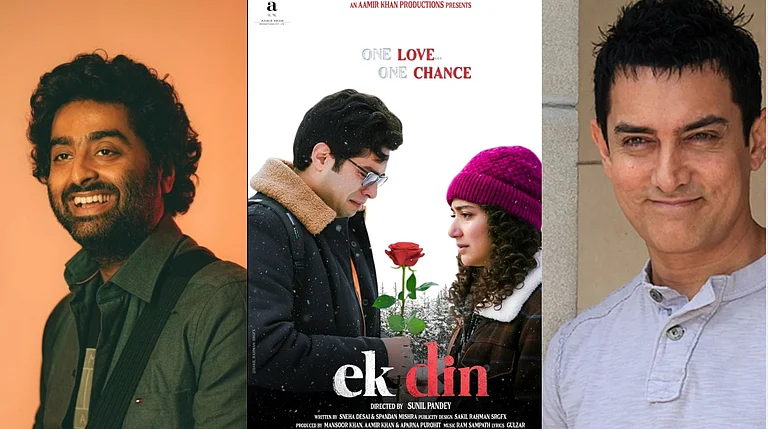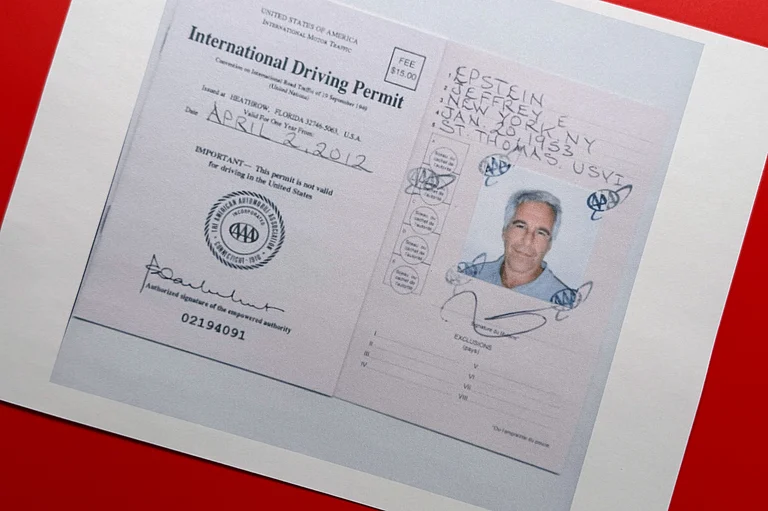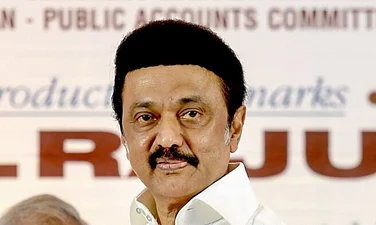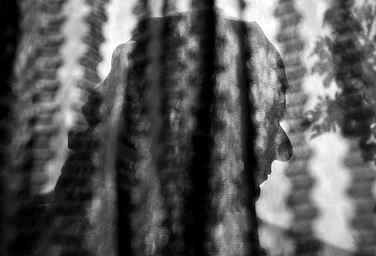THE Centre has every reason to project the March 15 meeting in New Delhi between nine Kashmir militants and the Union Home Minister S.B. Chavan as a breakthrough. This is the first time since militancy surfaced seven years ago, that extremists have come forward to negotiate with the Government. While it would be too optimistic to expect any immediate and dramatic change in the strife-torn Valley, the meeting with the militants has been described by Chavan as a "first step" in bringing normalcy back to Kashmir. However, any good emerging from the latest peace effort will depend on how far the militants, who call themselves the Forum for Peaceful Resolution of the Crisis in Jammu and Kashmir, are accepted as legitimate representatives of the people.
In Srinagar, voices of protest have already surfaced. On the day of the meeting in Delhi, the Jamait-ul-Mujahideen, a pro-Pakistan militant group, declared a bandh in Srinagar and the rest of the Valley to protest against the peace efforts. The All Party Hurriyat Conference (APHC), the political forum of the militant struggle, has condemned the meeting and declared that "the militants had no mandate and any solution worked out between them and the Indian Government will not work".
The APHC is naturally threatened by the rise of a parallel forum and has accused the militants of being 'agents' of the Government. For its part, the JKLF has warned that "no one will be allowed to sell out the interests of the people of Kashmir". Asya Andradi, the president of Dukh-de-Ran-e-Millat, a women's group, has asked the people of Kashmir to "make the lives of the militants miserable".
In fact, sources in Srinagar close to some of the militant groups predict a spurt in violence in the Valley to prove that the talks in Delhi have not worked. Hartals are being planned around March 21, when a high-level committee headed by V.K. Jain, special secretary in the Home Ministry, tours Kashmir. Chavan has announced that he will also be visiting the state. Points out a source: "The success of the latest peace move will depend on how far the Government machinery can keep a check on the militants during the next few weeks. There will be every effort to show that there is stiff opposition to the militants talking to Delhi, particularly when Chavan visits Kashmir."
How much support do the militants who came for the peace parley in North peace to the Valley. And this, he says, they are prepared to do with or without the blessings of the Hurriyat Conference.
Incidentally, it is the APHC which came in for criticism from the militants in Delhi. Of the nine militants who took part in the talks, four were in the news last month, when they attacked the Hurriyat at a press conference in Srinagar and offered to talk to the Government without any pre-conditions. The four form the core of the new peace forum: Babbar Badr, former chief of the Muslim Janbaaz Force, is the chairman of the forum while Imran Rahi, former chief of the Hizbul Mujahideen, Loudhi Bilal former head of the Al Baraq, and Ghulam Mohiuddin Lone, a functionary of the Muslim Mujahideen, are senior leaders.
Though there is optimism in Delhi, the militants have actually not shown any willingness to tone down their demand for the right to self-determination. Also, one of the demands made to Chavan, that renegade militant groups in the Valley be disarmed and disbanded, may not be appreciated by the Home Ministry. Many of the Government operations against militants in recent times in Kashmir have been with the help of the renegade groups. And the Government, say observers, may not be in a position to cut off an arm it has been fighting with. Besides, it may take time for North Block to decide whether to release militants in custody—another demand made by the militants.
According to one militant leader, who is part of the APHC, if these two demands are met, the peace initiative will acquire a degree of seriousness, so much so that the new forum will find support in the Valley. Says he: "If the militants can prove that they have done more than drink tea and exchange polite words with Chavan, they will be seen as a credible force." But only the next few weeks will reveal the significance of the one-hour peace parley between the militants and the home minister.






















